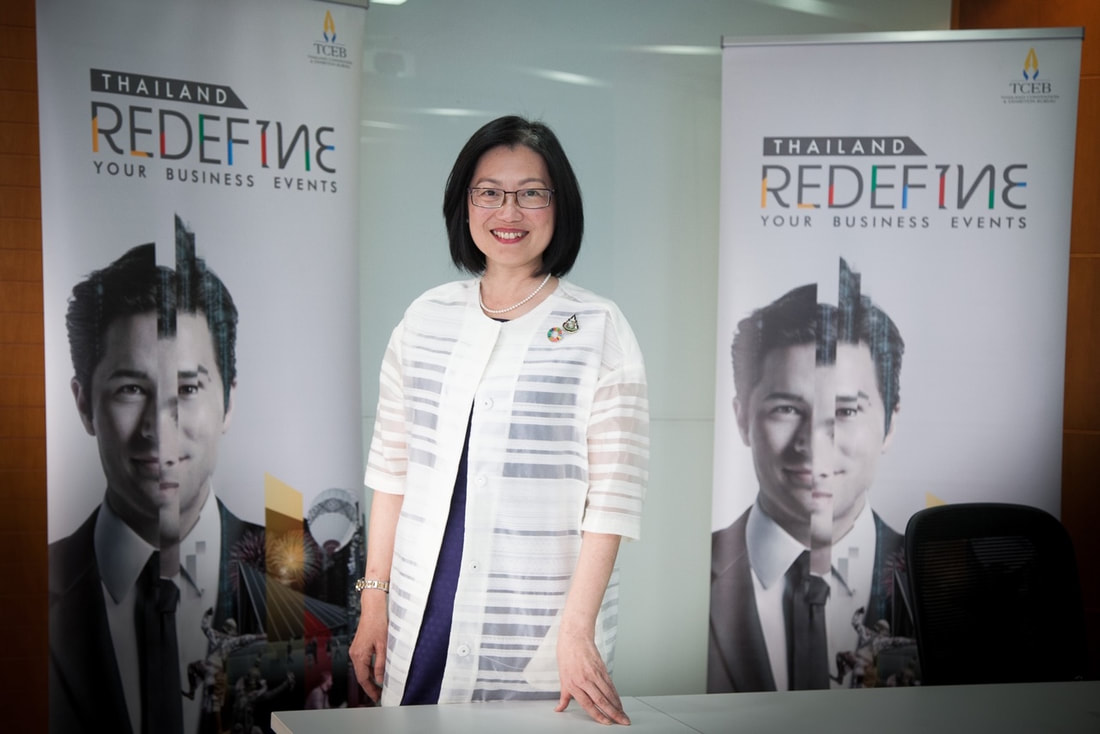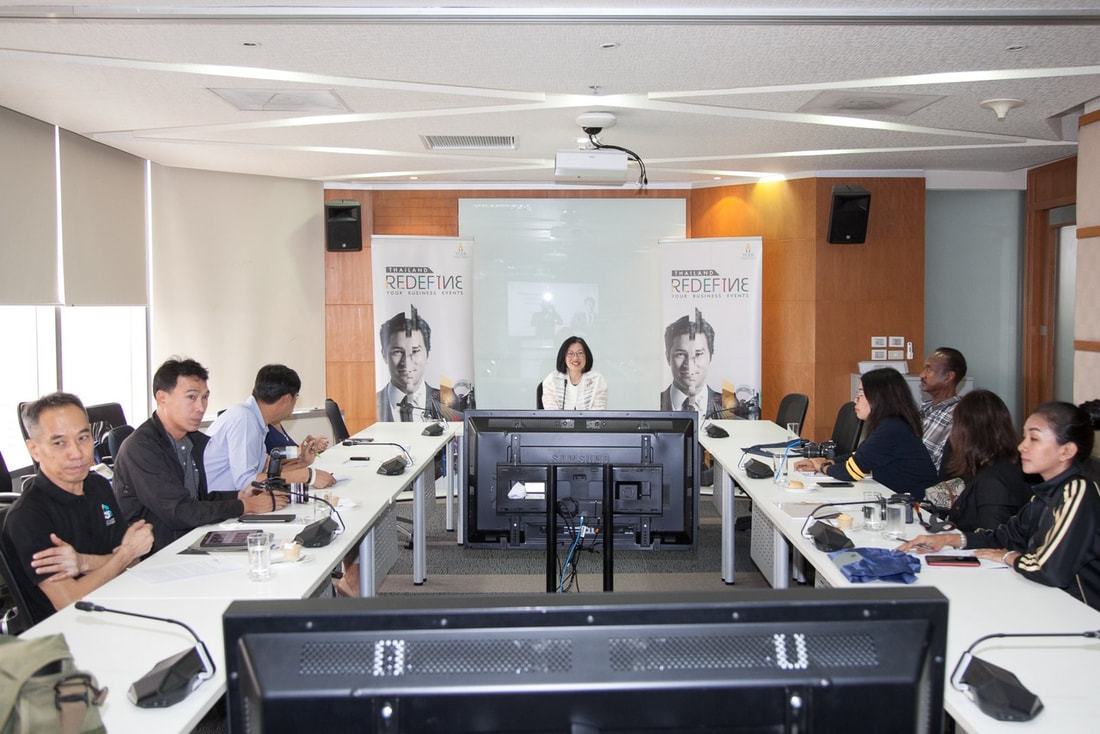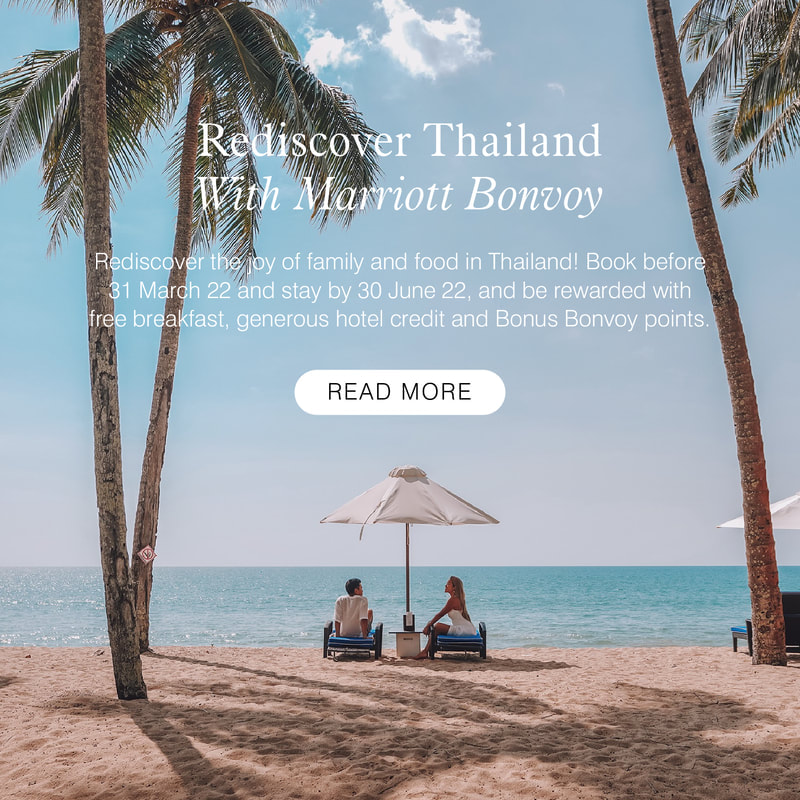Regional leadership role in championing and promoting sustainability begins new era for Thai MICE industry
The Thailand Convention and Exhibition Bureau (TCEB) is launching its ‘Meet Sustainable’ financial subsidy, a first for Thailand’s MICE industry, to position the country as the sustainable practices leader in the region and beyond. A maximum of 200,000 baht in cash support will be offered to meeting and incentive groups of minimum 50 international delegates, staying at least three nights in Thailand, and meeting at least two elements of TCEB’s criteria for sustainable event practices.
Mrs. Nichapa Yoswee, TCEB's Senior Vice President - Business, said: "By demonstrating its continued strong commitment to sustainability, Thailand is fostering synergies within its key support sectors while leveraging TCEB's leadership and network of expertise via its ‘Thailand Redefine your Business Events’ strategy.
“TCEB’s role as a thought leader in promoting sustainability is now transformed into becoming a partner in implementing sustainable business events, all under the new branding to make business events in Thailand a redefined experience,” she added.
The launch of the ‘Meet Sustainable’ campaign is built upon the solid foundation of TCEB in introducing and promoting sustainable practices to Thai MICE suppliers for over 10 years. Key programmes and initiatives TCEB have undertaken to promote sustainability include implementing seven sustainability-related ISO initiatives achieved by 33 Thai MICE venue operators.
Mrs. Nichapa Yoswee, TCEB's Senior Vice President - Business, said: "By demonstrating its continued strong commitment to sustainability, Thailand is fostering synergies within its key support sectors while leveraging TCEB's leadership and network of expertise via its ‘Thailand Redefine your Business Events’ strategy.
“TCEB’s role as a thought leader in promoting sustainability is now transformed into becoming a partner in implementing sustainable business events, all under the new branding to make business events in Thailand a redefined experience,” she added.
The launch of the ‘Meet Sustainable’ campaign is built upon the solid foundation of TCEB in introducing and promoting sustainable practices to Thai MICE suppliers for over 10 years. Key programmes and initiatives TCEB have undertaken to promote sustainability include implementing seven sustainability-related ISO initiatives achieved by 33 Thai MICE venue operators.
These include ISO 22000 - Food Safety Management Systems at seven venues, ISO 50001 - Energy Management at four venues, ISO 20121 - Event Sustainability and Management Systems at 15 venues, ISO 22301 - Business Continuity Management Systems at one venue, ISO 9001 - Quality Management Systems at 15 venues, ISO 14001 - Environment Management Systems at six venues, and ISO 22300 - MICE Security Management Systems at six venues.
The others are Food Waste Prevention Programme engaged by eight venues and Farm to Functions involving 20 venues.
“Food Waste Prevention Programmes helps reduced food waste by 155,000 kilograms during 2018 up until June 2019, while Farm to Functions can secure 300 tonnes of organic rice direct from farmers, generating 12 million baht to 500 farming households,” Mrs. Nichapa stated.
TCEB places emphasis on its seven ongoing sustainable practices at the heart of the ‘Meet Sustainable’ campaign, and stresses that it is essential for event to exercise at least two practices to be eligible for the subsidy. The practices are to ensure that participants, partners and service providers can actively prepare and participate in the process, pre-, during and post-event.
Pre-event, planners or organisers must publicise the event via digital media or online platform, while promoting sustainable events to allow participant and partner to prepare and participate.
During event, organisers must serve drinking water in a water flash and/or jug or large glass of bottles, provide a reusable tumbler to participants, use no plastic straws, and donate leftover food to non-profit organisations. Venues must be certified for environmental and energy management. Materials for venue decorations and equipment must be reused or re-purposed, no use of fresh flowers or foam materials. Souvenirs must be produced by local community or made from environmental-friendly materials. It must also use electronic registration system and reusable badges.
Post-event, organisers must promote best practices, success and benefits from organising sustainable events to associated or related persons and public.
The others are Food Waste Prevention Programme engaged by eight venues and Farm to Functions involving 20 venues.
“Food Waste Prevention Programmes helps reduced food waste by 155,000 kilograms during 2018 up until June 2019, while Farm to Functions can secure 300 tonnes of organic rice direct from farmers, generating 12 million baht to 500 farming households,” Mrs. Nichapa stated.
TCEB places emphasis on its seven ongoing sustainable practices at the heart of the ‘Meet Sustainable’ campaign, and stresses that it is essential for event to exercise at least two practices to be eligible for the subsidy. The practices are to ensure that participants, partners and service providers can actively prepare and participate in the process, pre-, during and post-event.
Pre-event, planners or organisers must publicise the event via digital media or online platform, while promoting sustainable events to allow participant and partner to prepare and participate.
During event, organisers must serve drinking water in a water flash and/or jug or large glass of bottles, provide a reusable tumbler to participants, use no plastic straws, and donate leftover food to non-profit organisations. Venues must be certified for environmental and energy management. Materials for venue decorations and equipment must be reused or re-purposed, no use of fresh flowers or foam materials. Souvenirs must be produced by local community or made from environmental-friendly materials. It must also use electronic registration system and reusable badges.
Post-event, organisers must promote best practices, success and benefits from organising sustainable events to associated or related persons and public.





















